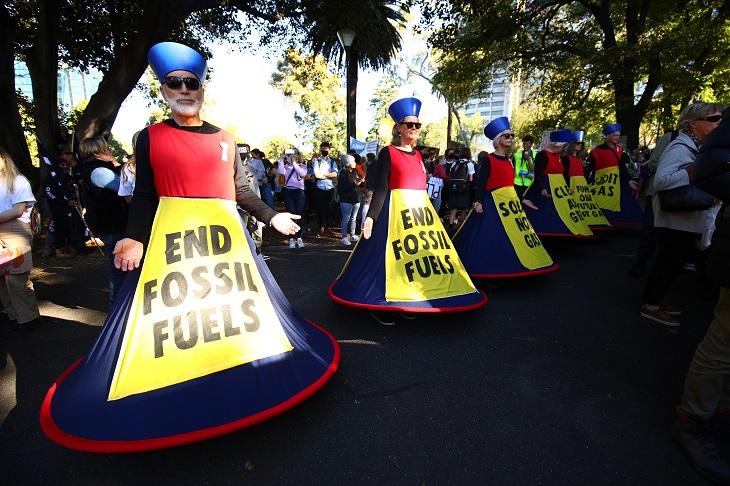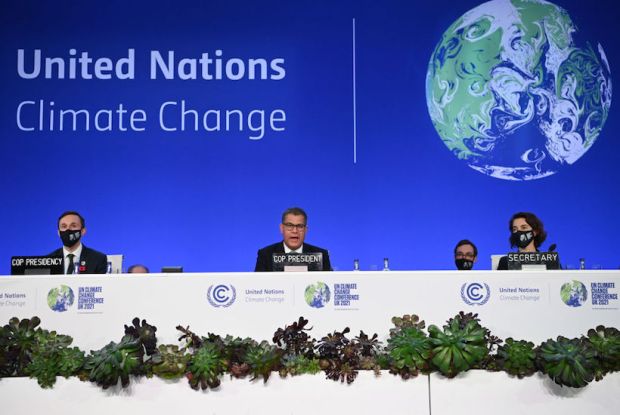After I started my business more than 30 years ago, I joined a group of fellow owners and CEOs who met to share and discuss their challenges. At the time, a few investment funds were describing themselves as ‘ethical’, and in due course my group heard from a speaker on ethics. I asked for a definition and who decides what is ethical. I was told I was out of order and soon asked to leave the group.
A few years later, some funds began describing themselves as ‘sustainable investors’. I wrote a column about it, asking who defines sustainable and has anyone ever knowingly invested in a company that was unsustainable? There were multiple letters to the editor criticising me.
These days it’s all about Environmental, Social, and Governance (ESG). And it is no longer a few managed funds seeking to attract investors through differentiation. There are now many thousands of funds and businesses claiming to be ESG compliant. According to one source, US$35 trillion was invested in so-called sustainable investment funds worldwide in 2020, and this is expected to rise to around US$50 trillion by 2025.
Indeed, Australian investors can find it difficult to identify a major fund or company that has not signed up. Nearly all the big superannuation funds are involved, as are the banks, insurance companies, supermarkets and large retailers. Some resource companies have also signed up – the best example being BHP, which has sold its coal division.
There are plenty of organisations to ‘help’ companies with their ESG ratings. Among them are Bloomberg, Standard and Poors, and Fitch – the latter two offering an ESG rating service in addition to their credit assessments. Companies pay a fee to be told what they must do to be rated more ethical and sustainable. Investment funds that have adopted an ESG policy use these ratings to decide whether to include a company’s shares in their portfolio.
ESG proponents claim they are using market forces to save the world from climate change and other evils of capitalism. There is no definitive list of ESG criteria, but the issues of concern to Greenpeace and WWF are all on it. The World Economic Forum and its offshoots also have plenty of influence.
Businesses with exposure to coal, nuclear power, private prisons, agricultural biotechnology, tobacco, tar sands, or weapons and firearms are generally avoided. Companies that have major or recent controversies with human rights, animal welfare, environmental concerns, governance issues, or product safety are also problematic. Net zero emissions, female board representation, support for LGBTQ rights, diversity, and ‘fair’ wages are all obligatory.
Among the claims of proponents is that investment returns are superior to non-ESG investments. To the extent that this is true, it is entirely attributable to the pile-on by investment funds, similar to a pyramid marketing scheme. There is little about ESG criteria that leads to superior performance, as will become obvious once the pile-on comes to an end.
Demand for ESG investments is largely driven by the huge funds that manage billions of dollars on behalf of thousands of small investors. Those making the decisions are not investing their own money; moreover, they have never inquired whether those small investors are happy to sacrifice returns against ethics or sustainability. In any case, the relatively few investors who deliberately choose to invest in an ESG fund have no opportunity to review or modify the ESG criteria. Questioning is no more welcome than it was 30 years ago.
Few of the decision-makers in the companies that have adopted ESG policies have more than token amounts of their own money at stake either. However, while some are being weak-minded in the face of lobbying by environmental and woke activists, a bigger influence is fear of a declining share price due to investor withdrawal, or concern over potential loss of access to loan finance.
This is becoming a real problem, as shown by the coal industry. A financial boycott of coal by all our major banks is, in effect, sabotaging Australia’s fourth biggest export earner and the source of over $5 billion in royalties. An example is Newcastle Coal Infrastructure Group, owner and operator of the world’s biggest coal loader at Newcastle, which is struggling to roll over its debt.
To describe this as ethical requires a high degree of hypocrisy. Thousands of villages in India and Africa continue to use dried cow manure as cooking fuel because affordable electricity is not available. The fumes from those fires are a health hazard and the lack of lighting means children cannot do schoolwork after dark. And even if reducing carbon dioxide emissions in developed countries is somehow deemed ethical, why is nuclear energy unacceptable?
Similarly, why is it unethical to invest in agricultural biotechnology, otherwise known as genetically modified crops, when the result is increased food production and less need to clear land? Why is it unethical to invest in firms involved in the shooting sports, which are part of the Olympic and Commonwealth games? And when it comes to women on company boards, what makes it ethical to appoint women who are less qualified and capable than male candidates?
There is nothing at all wrong with investing our own money according to our view as to what is ethical and sustainable. The problem with ESG investing is that it is neither ethical nor sustainable despite purporting to have all the answers. It is also supported by an army of smug, self-satisfied activists who hound and vilify those who hold a different view.
I manage my own superannuation fund, which means my investment decisions will determine how well I live in retirement. My challenge is to find investments that deliver an acceptable return commensurate with the risk and consistent with my own ideas of what is ethical, sustainable, and good governance.
On that, I try to avoid investing in anything that is wholly or partially owned by the governments of Myanmar or China. I also avoid anything tainted by the use of Uighur or Falun Gong labour, is based in Tibet, or involved in technology that enables authorities to monitor the activities of users.
What I find strange is that there do not appear to be any ESG funds that satisfy those criteria. Ethical and sustainable indeed.
David Leyonhjelm is a former senator for the Liberal Democrats.
Got something to add? Join the discussion and comment below.
Get 10 issues for just $10
Subscribe to The Spectator Australia today for the next 10 magazine issues, plus full online access, for just $10.

























Comments
Don't miss out
Join the conversation with other Spectator Australia readers. Subscribe to leave a comment.
SUBSCRIBEAlready a subscriber? Log in